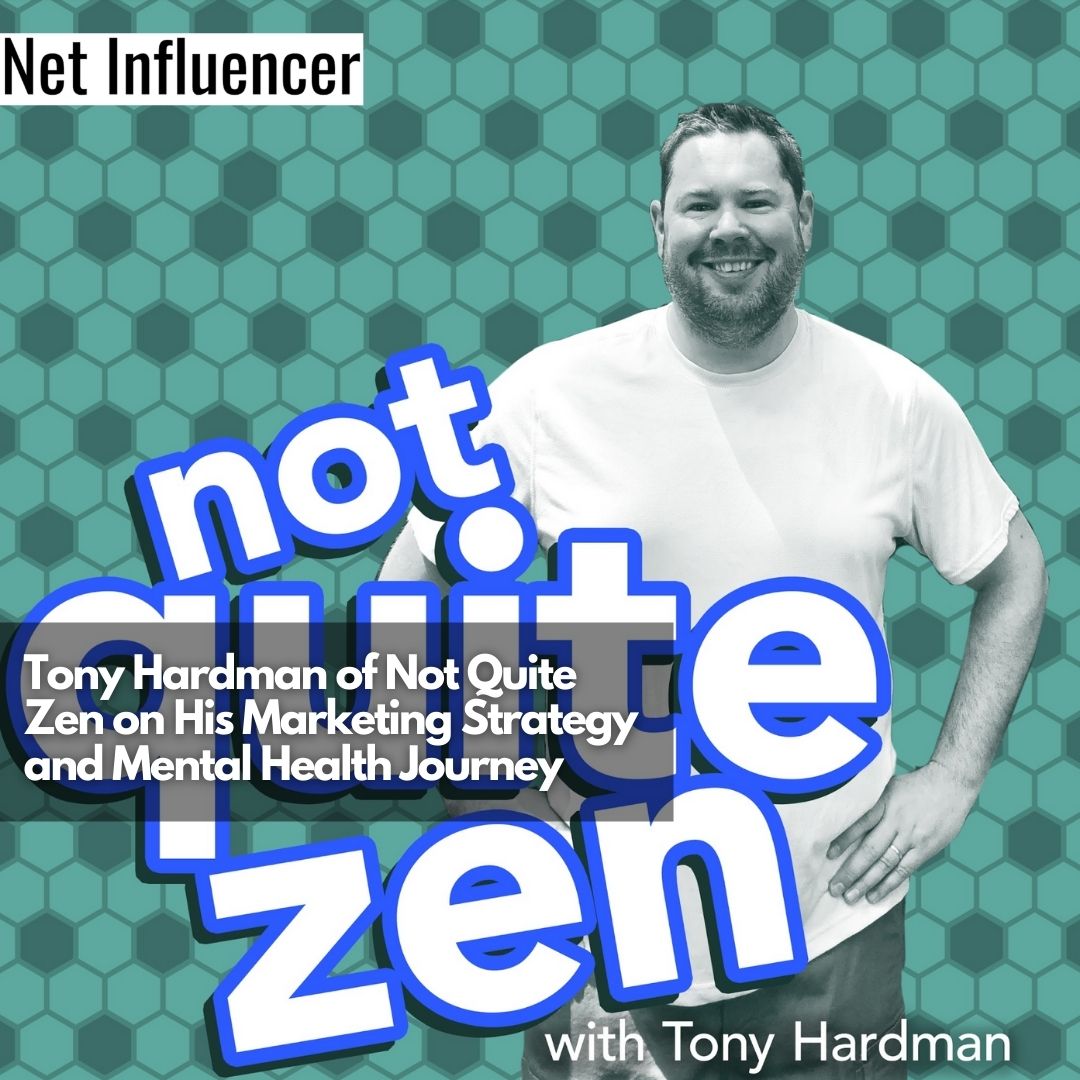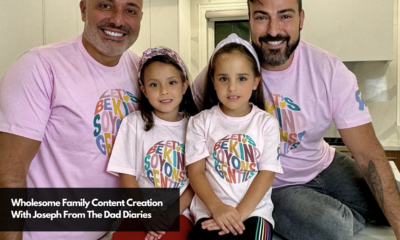Influencer
Tony Hardman of Not Quite Zen on His Marketing Strategy and Mental Health Journey
Who is Tony Hardman?
Tony Hardman is a self-described “regular guy” who has a blog and podcast called Not Quite Zen.
“It was inspired by my own mental health journey after years of suffering, I finally worked hard and figured out how to get better, and I’m sharing that story and sharing my experience to help others.”
Tony has been a lifelong storyteller and has always enjoyed writing. He graduated from college in 2006 with a degree in journalism and worked in PR for years before transitioning into content marketing.
He worked for agencies but said that “I was always wanting to do my own things, share my own voice, and there were other projects that I started, but I think the real key is finding something that you’re passionate about and sticking with that.”
The Beginning of Not Quite Zen
“You don’t recognize change in yourself sometimes until you see it through other people’s eyes.”
Tony shares that the idea for Not Quite Zen came after a boss complimented him on an award that he won and had called him the “master of zen.”
This was a pivotal moment for Tony.
He shares, “It was a really striking moment for me because, in the past, I had a lot of interpersonal relationship issues with people… It was amazing to see all the work that I had done and all the changes that I made through somebody else’s eyes.”
He immediately thought that he was “not quite zen” because there would always be people around him that had known him for a long time and knew him as “Angry Tony.”
“And that’s when it dawned on me with Not Quite Zen. That would be a great idea for a podcast, and I’ve been wanting to do something [like that] for a really long time.”
His previous experience in broadcast journalism and writing helped him launch Not Quite Zen quickly because he already had extensive experience in video editing, writing, telling stories, and SEO.
He launched both the podcast and blog simultaneously, which sometimes proves challenging to balance both.
However, he notes, “I am proud of the content that I’m putting out, and I do think it’s very high quality, especially for someone you consider a beginner.”
Not Quite Zen’s Content and Focus
Tony shares that Not Quite Zen’s biggest focus is acceptance and commitment therapy.
“I think most people when they start therapy, they are automatically put into cognitive-behavioral therapy and… it works for some people, but the common complaint I hear when I talk to others is CBT tries to change your thoughts and rewire the way you think.”
However, cognitive-behavioral therapy does not work to replace negative thoughts for many people.
Tony shares that his cognitive-behavioral therapist recommended acceptance and commitment therapy to him, which focuses on identifying your core values and taking committed action towards those values.
Tony shares an example of how this therapy worked in his own life. For him, being a good father is a core value, so he stepped up to coach his son’s soccer team despite his anxiety. As time went on, Tony’s anxiety about coaching the soccer team decreased, and he ended up being an excellent coach.
“That had a cumulative compounding effect, so I have a lot more confidence to do other things like start a blog and podcast or, you know, do DIY stuff around the house.”
Tony’s Marketing Strategies
Tony shares that SEO has worked well for him in marketing his blog and podcast.
“One remarkable thing that’s happened is I’m already on page one for two terms… It usually takes people two years to rank for page one on any terms, so that’s great, and then I’m ranking on page two for a high difficulty term [too].”
Another successful marketing strategy for Tony is being honest about how he’s feeling. This openness led him to write a post on Facebook about how to stop existential dread, which received 2,000 page views and led to people subscribing to his newsletter.
Currently, he posts at least once a week on his blog. Each blog post is long-form content that is usually close to 3,000 words in length which he reveals likely helps him rank for topics quickly.
He also uses Ubersuggest, an SEO tool he uses to find low-volume terms. From there, he searches for the term in incognito mode to see if big companies are already ranking for the term. If they are, he avoids that term and looks for one that is less competitive to rank for.
Tony shares that he has worked on other social media platforms in addition to his blog and podcast. However, he’s realized that this can be very time-consuming, and certain apps, like TikTok, are not ideal for carrying over an audience to a blog or newsletter.
“I’m more focused on long-term, steady growth that will remain constant.”
Tony’s Creative Process
When asked about his creative process, Tony shares, “I also have ADHD, so my process is a little bit scatterbrained. I’m a great storyteller, and I’m a really great writer, but sometimes it’s all over the place, so a lot of what I’ll do is I have a running note on my phone on the notes app, and any time I have a good idea for content, I’ll write it down on that note.”
He also maps out his core content on topics like anxiety, burnout, and depression. The first 12 episodes of his podcast were focused on the six core principles of act, which he considers his core content.
In terms of topics, he shares, “I’m not writing for the algorithm. I’m writing what I want to write, but I am tailoring it to the algorithm so that I have an opportunity to rank.”
His typical process for writing blog posts or podcasts is to create a high-level outline and then use an artificial intelligence tool called HyperWrite, which will sometimes pick up on things he didn’t think about.
The Future of Influencer Marketing
When asked about the future of influencer marketing, Tony explains, “I think the smart ones [influencers] and the ones that are going to last are the ones that don’t build their foundation on rented land.”
He explains that influencers relying on only one platform, such as Instagram, may struggle, especially if their content is heavily based on one thing, like photos. There is also the chance that a social media platform could completely go away, making relying on one platform or “rented land” a danger to their business.
“So, I think that’s kind of the key is thinking of it as a business and doing it on your own platforms… because social media can change the dial at any time.”
Future Plans & Goals
Tony shares that his dream collaboration would be with the Calm app, which helped him with mindfulness and meditation on his mental health journey.
For future plans, he shares he gives updates and information in his newsletter, but the thing he is most excited about is working on an interactive values tool that helps individuals identify their core values.



















